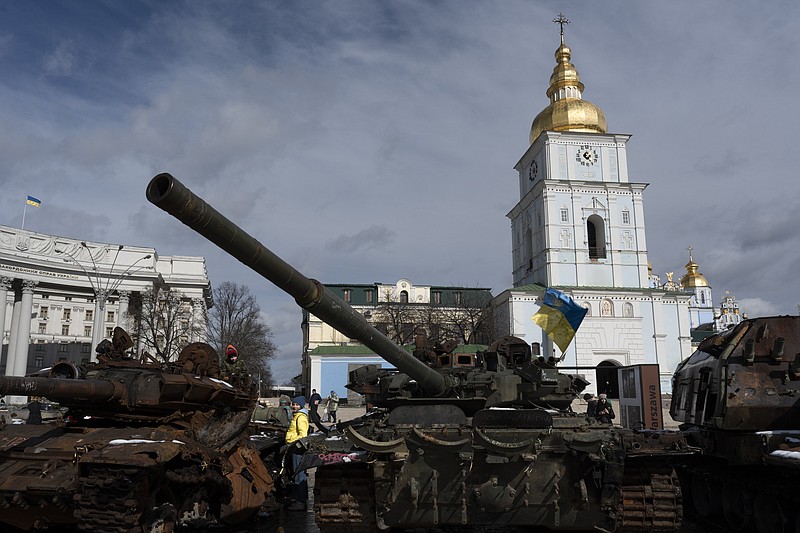By JAMEY KEATEN and KARL RITTER
Associated Press
GENEVA (AP) -- A Russian delegation at talks with senior U.N. officials said Monday that Moscow is ready to accept an extension to a grain export deal that has helped bring down global food prices amid the war with Ukraine -- but only for 60 days as the Kremlin holds out for changes to how the arrangement is working.
The United Nations and Turkey brokered a deal between the two warring countries in July that allows Ukraine -- one of the world's key breadbaskets -- to ship food and fertilizer from three of its Black Sea ports.
The 120-day agreement, which helped take some of the sting out of rising global food prices, was renewed last November. That extension expires on Saturday, and another 120-day extension was on the table. Ukraine charged Monday that the Russian proposal to extend it only for 60 days goes against the original agreement.
Moscow has been frustrated that a parallel deal to allow exports of Russian food and fertilizer, which is used across the globe, has only resulted in a trickle of Russian fertilizer getting out and no Russian grain at all.
"The comprehensive and frank conversation has once again confirmed that while the commercial export of Ukrainian products is carried out at a steady pace, bringing considerable profits to Kiev, restrictions on the Russian agricultural exporters are still in place," the Russian delegation said in a statement.
"The sanctions exemptions for food and fertilizers announced by Washington, Brussels and London are essentially inactive," it claimed.
As part of the arrangement, Moscow wants Russian ammonia to be fed through a pipeline across Ukraine to reach Black Sea ports for possible export. Russian officials also say banking restrictions and high insurance costs have hurt their hopes of exporting fertilizer.
A lot is at stake: Ukraine and Russia are key global suppliers of wheat, barley, sunflower oil and other food to countries in Africa, the Middle East and parts of Asia where millions of people don't have enough to eat. Russia was also the world's top exporter of fertilizer before the war. The loss of those supplies, after Russia launched its full-scale invasion in February 2022, drove global food prices higher and fueled concerns of a hunger crisis in poorer countries.
The amount of grain leaving Ukraine has dropped even as the deal works to keep food flowing. Inspections of ships under the grain initiative have fallen sharply since they got rolling in earnest in September, and vessels have been backed up.
Western critics accuse Russia of dragging its heels on inspections. Moscow denies that.
Though the grain deal helped stabilize global food prices, there are still concerns about the impact on prices of possible trade restrictions and weather, especially heat waves, said Michael Puma, director of Columbia University's Center for Climate Systems Research whose research focuses on global food security.
On the front lines in Ukraine, the eastern city of Bakhmut remained the site of fierce fighting, with Ukrainian forces denying Russian forces the prize of its capture after six months of attrition.
Ukraine's presidential office said Monday that four civilians were killed and 11 wounded in the country over the previous 24 hours.

